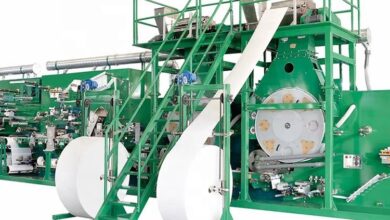The IQT Lab Model: Look at Ignition Delay Testing for Fuels
Ignition delay testing stands as a crucial procedure for assessing the quality and performance of fuels. At the forefront of this process is the IQT Lab Model, also known as IQT-LM, a foundational yet highly efficient instrument designed specifically for ignition delay testing. This guide delves into the features and benefits of the IQT-LM, a model that has been leading the industry since its introduction in 1998. Whether adhering to ASTM D6890, EN 15195 (IP 498), or ASTM D6751 standards, the IQT Lab Model remains a steadfast companion for professionals in the field.
High Precision Fuel Injection System (HP-FIS):
Equipped with the standard High Precision Fuel Injection System (HP-FIS), the IQT-LM ensures precise fuel injection during ignition delay testing, laying the groundwork for reliable results. While lacking some of the automation and precision features of the TALM model, the LM model remains a robust and dependable option for fundamental testing requirements.
Specifications and Standards:
The IQT Lab Model stands as the preferred equipment for conducting ignition delay and Derived Cetane Number (DCN) tests on various fuel types. It aligns with critical standards, including ASTM D6890, EN 15195 (IP 498), and ASTM D6751, ensuring accuracy and consistency in testing procedures.
User-Friendly Interface:
Each IQT system is accompanied by a Windows 10 PC running the IQT TALM K2 software, providing users with a user-friendly interface for enhanced visibility during test monitoring. The monitor display facilitates easy access to crucial data and test progress, streamlining operations in a laboratory setting.
Data Backup and Redundancy:
The IQT Lab Model incorporates a fully integrated data backup system, automatically safeguarding the entire computer system to an internal backup drive. With RAID 1 redundancy on the primary drive, the system ensures continuous operation even in the event of a disk drive failure, maintaining data integrity and system resilience.
Additional Features:
- The TALM K2 software offers highly visible test monitoring for quick assessment.
- Automated calibration is recommended for use with the Extra-Large (95 mL, stainless steel) Fuel Reservoir Assembly.
- The IQT system is consistent with fuel specification test methods, offering automated test procedures, quiet operation, and ease of use.
- Short test times, approximately 17 minutes, enhance productivity.
- Enhanced productivity can be achieved with the K9 self-sealing reservoirs and cleaning/filling station, enabling preparation of multiple fuel samples for testing in advance.
- Compatible with either the TALM-K7 electronic pressure regulator system or the mechanical pressure panel.
- Sensitive to cetane improver additives and small fuel quality variations.
- Capable of measuring high levels of cetane improver (3000 ppm+ 2EHN) with no negative carryover effects.
- Proven testing capability for highly paraffinic fuels from synthesis or hydro-treatment.
- Requires a small sample size, less than 100 mL.
- Offers a high level of reliability, ruggedness, and low operating and maintenance costs.
- Easy access for maintenance with a well-established safety track record over many years.
- Proven testing capability for B100 and other biodiesel fuels from various sources.
Conclusion:
In conclusion, the IQT Lab Model (IQT-LM) stands as a testament to reliability and precision in the realm of ignition delay testing for fuels. With a rich history dating back to its inception in 1998, the IQT-LM continues to meet the needs of professionals and researchers worldwide.
Frequently Asked Questions:
What is the IQT Lab Model (IQT-LM)?
The IQT Lab Model, or IQT-LM, is an ignition delay testing instrument designed to assess the quality and performance of various fuels. Equipped with the High Precision Fuel Injection System (HP-FIS), it is well-suited for conducting tests in accordance with industry standards.
What key standards does the IQT-LM comply with?
The IQT Lab Model is specified equipment for testing fuels according to several important standards, including ASTM D6890, EN 15195 (IP 498), and ASTM D6751, covering a range of fuel types and characteristics.
How user-friendly is the IQT-LM’s interface?
The IQT-LM features the IQT TALM K2 software, offering a user-friendly interface for high-visibility test monitoring, making it easy to assess test progress and data in a lab environment.
Can the IQT-LM withstand data loss in case of system failure?
Yes, the IQT Lab Model features a fully integrated data backup system, automatically backing up the entire computer system to an internal backup drive. Furthermore, the primary drive has RAID 1 redundancy, ensuring data security and system resilience in the event of a drive failure.
What are the additional features of the IQT-LM?
Some additional features of the IQT Lab Model include highly visible test monitoring with the TALM K2 software, automated calibration (recommended for use with specific fuel reservoir assemblies), short test times (approximately 17 minutes), and the ability to measure high levels of cetane improver additives with no negative carryover effects.
Is the IQT-LM compatible with various fuel types?
Yes, the IQT-LM is designed to test a wide range of fuel types, including highly paraffinic fuels from synthesis or hydro-treatment, making it a valuable tool for analysing different fuel samples.
Is the IQT-LM easy to maintain?
Yes, the IQT Lab Model offers easy access for maintenance and has a proven safety track record established over many years. It is a rugged system with low operating and maintenance costs.
What is the testing capability of the IQT-LM regarding biodiesel fuels?
The IQT Lab Model has a proven testing capability for B100 and other biodiesel fuels from various sources, making it a reliable choice for conducting tests on biodiesel blends.
Read tech related blog posts by visiting this website.



